Who Is Justin Khanna?
Justin Khanna is a chef, content creator and entrepreneur based in Seattle, WA. After graduating from The Culinary Institute of America in 2012, Justin spent over eight years training at Michelin-Starred and critically acclaimed restaurants.
For years he thought that he wanted to go for Michelin stars, and he worked his way up different brigades until he became an Executive Sous Chef.
He worked and staged at Per Se, Grace, The French Laundry, Frantzen, Noma, and Lysverket, among others.
OysterLink Podcast: Interview with Justin Khanna, chef & entrepreneur
Chef Turned Entrepreneur
Justin Khanna is one of the people that radiates positive energy on the first hello. With several years of experience in Micheline star restaurants he decided to change his career trajectory.
He managed to climb up the kitchen hierarchy to the position of Executive Sous Chef, but along the way he realized he wanted to do something else with his life.
Justin was disappointed in the education system and the fact that nothing you could learn in culinary school could prepare you for real life. That was a turning point.
Initially he started doing events and pop ups but realized that he wanted to do more for the community. He started his program called Total Station Domination. The primary goal is to help Line Cooks in mastering all stations and being comfortable dealing with real life scenarios.
In this interview we uncovered the truths behind being a Sous Chef, Linke Cook and finding the right mentor.
What inspired you to join the culinary world?
Justin Khanna: Yeah, so I grew up in a tiny town in the Midwest of the U.S., in Wisconsin. The gastronomy scene in a lot of the small cities and towns in the U.S. was burgers, pizza and chicken wings. Like, that's kind of as far as it got. It's not to say that there weren't a couple of restaurants that were, you know, maybe doing something a little bit more kind of like, polished. But I knew that I wanted to get out of that city, that town. When it came time to apply for university, it was one of those situations where I knew that I wanted to do something creative.
I knew that I wanted to eventually track towards having a business of my own, and I knew that, again — I wanted to travel, and I wanted to work with people. When you make that decision three all the way down, there's obviously a couple of different options. But, you know, food was something where I was like — yeah, let's give it a try.
I don't come from a restaurant family.
I hadn't really worked in restaurants, like I had done a little bit of studying at a local community college. Fun fact, in my last year of high school, I had completed all my credits that I needed to graduate. And so, I had the ability to go to that local community college and the culinary program there.
That eventually led me to applying to a culinary school in New York. I got accepted, and then I ultimately completed my culinary degree from CIA there. And that just kicked it all off, because at that campus, you're surrounded by only people studying food, pastry and beverage.
What that does is it steeps you in it, and you're not surrounded by people who are, you know, studying fine arts or music or business or anything like that. It's just “just food” people. And what catapulted it even further was my first kind of stage or work experience in a real high-caliber kitchen environment.
Then I got my first stage, and it was addicting. I knew I had found my passion.
How can aspiring chefs get their first placement?
Justin Khanna: Great question. I have a full series of video tutorials and templates on my YouTube channel, which I'm sure you guys will link below. And anybody who wants to DM me, I'll send that to you. But I have a cover letter template that I created as a digital thing.
Just for the folks reading, the basic gist of it is you want to get context on the place that you're applying for to effectively help that restaurant fill in the gaps.
It's one of those funny things where you can you can effectively show attitude when you are sending them an email that says: This is the specific thing about what you guys do, the way that you guys treat produce, the way that you lay out your menu, the cuisine that you guys happen to specialize in that is actually really speaking to me.
It gets me fired up. It gets me motivated. I want to work for you, as opposed to the numerous other places, either in town or in the country that I happen to live in. And sending that out makes it so that that restaurant sees you didn't just send an email blast to a bunch of different places.
You give it the ability to stand out from all those other applications that might be on that Executive Chef's desk by saying, oh man, this person really did research on us. Or oh, this person really went, you know, beyond what typically we would look for in an applicant. That sets the precedent to when you're going to come in. And then it's like, oh my goodness, this person's eyes are sharper than usual. Like there's all these things down the line that make you stand out as a good candidate.
How does Gen Z fit into the culinary world?
Justin Khanna: This industry is not as glamours as people imagine it to be. This results in having these overinflated expectations.
I find these expectations are a little bit more detrimental for young people, regardless of what avenue you want to go down in the industry.
I much more fall into this mindset; there's this quote in entrepreneurship, which is, “You're in the season of learning, not the season of earning.” And if you adopt that, you will succeed.
This is what I did for the first eight years of my career before I started to think about making financially motivated decisions. Initially you need to adopt the, put your head down, get the industry experience, build your network, start-from-the-bottom type of mindset.
I think people just want to skip ahead. And again, this is a generalized statement. It doesn't apply to everyone.
What would be your advice for people who don’t want to take the traditional approach?
Justin Khanna: Taking a non-traditional approach in the culinary world is worth it, but young people need to be aware that they will have to take more risks and experiment way more than their peers who choose a traditional path.
You can't follow in the footsteps of other people. You need to do your best and try to learn from other industries and watch interviews with other people and encapsulate their knowledge.
It's one of those funny situations where if you're going to go down an unconventional path, you have to be prepared to faceplant, then get up and then go and try again.
The well-trodden path is going to be easier to find success in because there's a framework, there is an architecturally sound way to go. Step one is do this. Step two is do this. But if you're going to try to branch outside of that, I think you just need to be prepared for a little bit of a bumpy ride.
How to maintain a healthy body with such a heavy workload?
Justin Khanna: There is advice that I would give now and then there's the advice that I either only knew about or was able to heed back then. I had the benefit of going into these kitchens when I was in my early 20s. Anybody at that age, it's like you're made of rubber and magic, it' s not that detrimental to your physical well-being to do a thirteen-hour day. You could bounce back relatively quickly.
I'll speak for — again, not maybe what I did, but what I wish somebody would have told me about when I started.
Long story short: the core foundation of hydration, sleep and a regularly decent nutrient profile is super, super helpful.
You need to figure out what’s going to be the easiest approach to maintain your health if you decided to take this career path for the long run. You need to use supplements, exercise your core, ideally not eat Taco Bell every night after the shift.
My biggest piece of advice was to pack up something that I would eat toward the end of the shift, so I wasn’t running just on the one staff meal and starving myself out. Core exercise and learning how to lift with your legs are immensely important, but so are your shoes.
We can’t talk about health if we don’t talk about abuse of substances in this industry. I luckily never struggled with it, but many people do. So, you need to set limits for yourself, you can’t come home and get drunk after every shift, that’s just not the way things should go.
Alcohol affects your sleep, and being well rested in this industry is extremely important. When you are not well-rested you are prone to hurting yourself more than when you get sufficient rest.
What are the qualities you look for when hiring?
Jusitn Khanna: This is another great question.
To answer is I need to go back to interpreting a thing a friend of mine said during our interview. His name is Max Shapiro, and he lives in LA. He loves going to restaurants. He critiques restaurants a lot, and he has this idea of guest-driven dining versus chef-driven dining.
And I think about that in the context of what you're asking about with hiring. I think a lot of us can paint a picture of what chef-driven dining looks like. It is the chef’s story.
That is a story with every single plate that gets presented to you, and it's more about the chef than it is about the guest.
And what I would look for in someone who's a potential candidate is, can you go into guest-driven mode?
If you want to be successful in this industry, you need to be able to take care of the person sitting at that table. You need to be aware of the small details and I will give a very basic example.
If the guest leaves the napkin next to the plate and it looks crumpled, fold it and place it on the right spot or change that napkin. Don’t let it sit on the table.
As a Chef, you need to be able to get your head up from the cutting board and observe the things happening around. This is something you can screen for during a situational interview. While screening you need to understand if the person will be receptive to feedback, or not. Assess the willingness to learn and the open mindedness of the candidate.
How can Station Domination help a Line Cook in their career?
Justin Khanna: I created Total Station Domination because there are more stations than chefs. While working for different establishments I got frustrated when I realized that the culinary school didn’t prepare me for the real-life situations I encountered on the stations.
There were no frameworks, it was frustrating, and it motivated me to create a framework that will help young people in their culinary careers.
The Total Station Domination program breaks lectures down into: prepare, perform and problem-solve.
Why did I decide to break it down like this? The reality of working in a restaurant is: You need to prepare for service, you need to perform, you need to crank your speed up. You need to move faster; you need to work more cleanly. And then there's going to be problems that show up and you will need to fix them on the go.
I help people stay organized and assess their strengths and weaknesses and give them areas to improve. As a mentor I work with them until they have it figured out.
What is the timeline of a career progression in the kitchen?
Justin Khanna: Career progression is individual. Some people start as Dishwashers and progress to Executive Chefs, others start as Line Cooks after culinary school and first stages.
People often talk about staying one year in a position and in an establishment. This is something I call tenured guilt. People need to understand when the one-year rule is applicable and when it’s not. There is no magic number, but as a young professional you can benefit from the one-year rule.
It all comes down to how much you are learning. In some restaurants after month three there will be no room for progress and that’s when you should leave. The more you can learn the longer you should stay, unless there are other factors such as bullying. In those scenarios you shouldn’t suffer. The toxic culture has been around for a while, and you don’t need to cope with it.
If there is space for learning and growth you should stay throughout the seasons, because you will be able to learn everything you should know about seasonal food, challenges of peak season and of the dead season. That’s not all, staying in an establishment for a long time gives you reliability and trustworthiness.
Note that diverse experiences from various establishments can also bring you far in the game.
That said, don’t jump around from place to place. When deciding where you will work next think about the learning opportunities and have a vision for your career.
Line Cook, Sous Chef, Entrepreneur and future Restaurant Owner: Justin Khanna
Justin Khanna is a mentor that can help every Prep Cook, Line Cook and Sous Chef progress in their careers. His advice is practical and includes taking care of your physical and mental health, learning from mentors, and maintaining a healthy work-life balance.
One thing that we can take from this interview is that in this industry there are no generalizations and every story is unique. Cooking skills, leadership and career progression are individual things.
Justin recognizes the benefits of OysterLink and our all-in oneness, and if you want to discover more information about a Line Cook or Sous Chef career path explore them today. If you already have a career path, check out the high paying jobs.
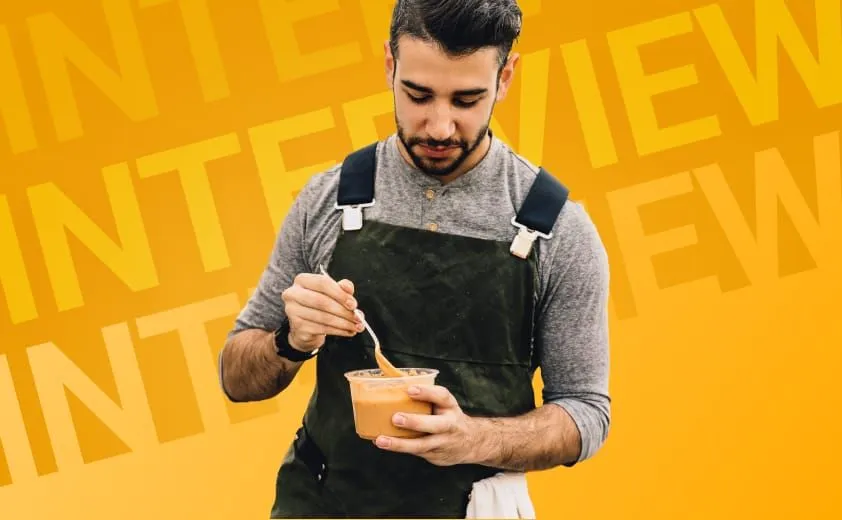

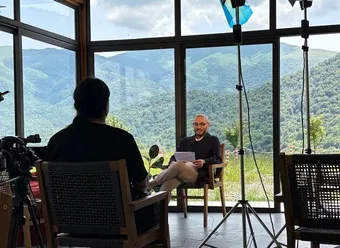
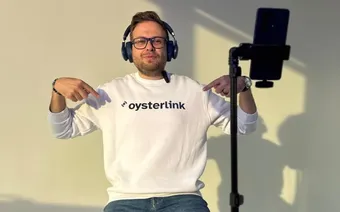
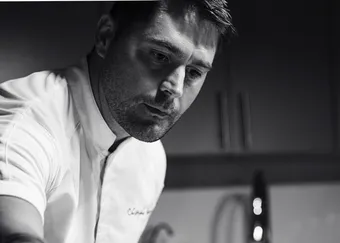
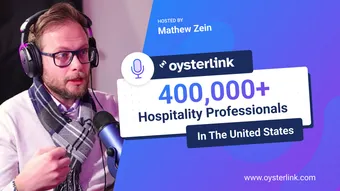
Loading comments...